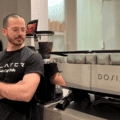Giorgos Papantoniou didn’t set out to join the coffee industry – he found his way into it through a quiet passion for quality and creating memorable moments. What began with Ibrik coffee in his teens evolved into founding Foyer Espresso Bar, one of Athens’ respected specialty coffee spots.
With a background in economics and a decade in coffee, Giorgos brings both curiosity and discipline to the craft. He’s not just serving great coffee – he’s questioning how it gets better, who it’s for, and why it matters. His time on the world competition stage and his work behind the bar reflect the same thoughtful approach.
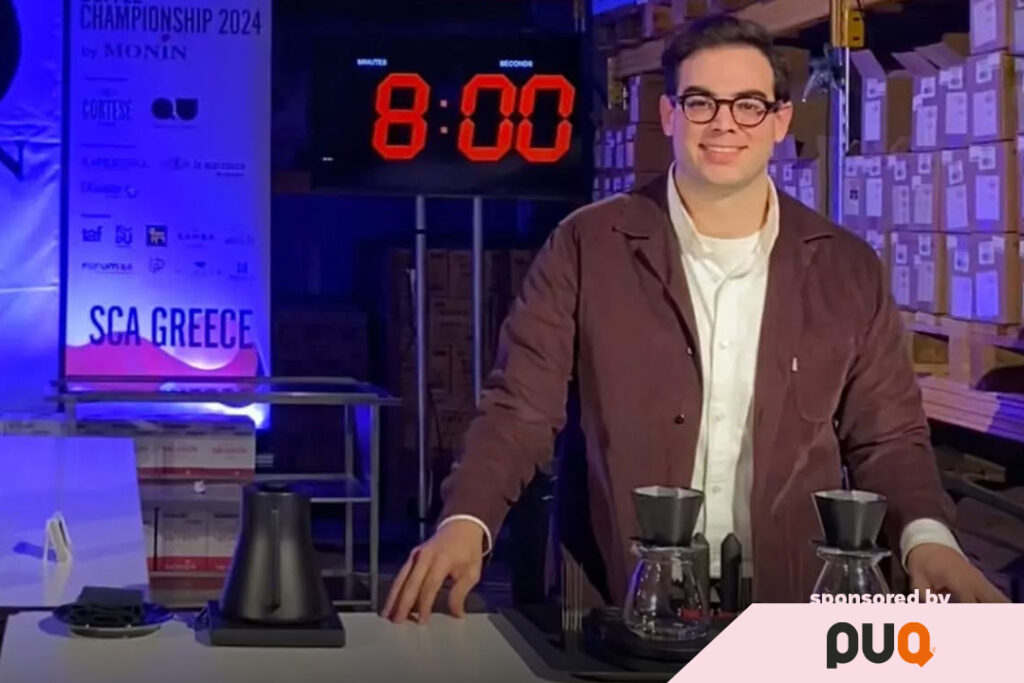
Giorgos, what is your first memory with coffee?
I’ve been making coffee for myself in the mornings since I was 14, typically brewing Ibrik coffee as many Greek households do. But everything changed in 2014 when I had my first V60 at Taf Coffee. Surprisingly, it was a Panama Gesha from Ninety Plus Estates, and that experience completely transformed the way I saw coffee.
What inspired you to pursue a career in the coffee industry, and how did you get started? What did you do before coffee?
I studied economics and worked a variety of jobs during Greece’s turbulent financial years between 2010 and 2015. Eventually, I found my way into the food sector. At the time, I was running a shop selling local specialities – traditional Greek products, wines, and spirits. Coincidentally, that shop was right next to what would later become the original location of Foyer. My growing passion for quality products gradually drew me into the world of coffee.
Tell us a bit about your place. What is your role there?
I work at Foyer Espresso Bar in Athens, Greece—a space I founded 10 years ago and share with my partners, Makis Papantoniou and Lisa Zancanella. Foyer is a vibrant, ever-evolving café that has grown alongside the specialty coffee scene. In the early days, we followed the trends, but over time, we’ve found ourselves helping to shape them.
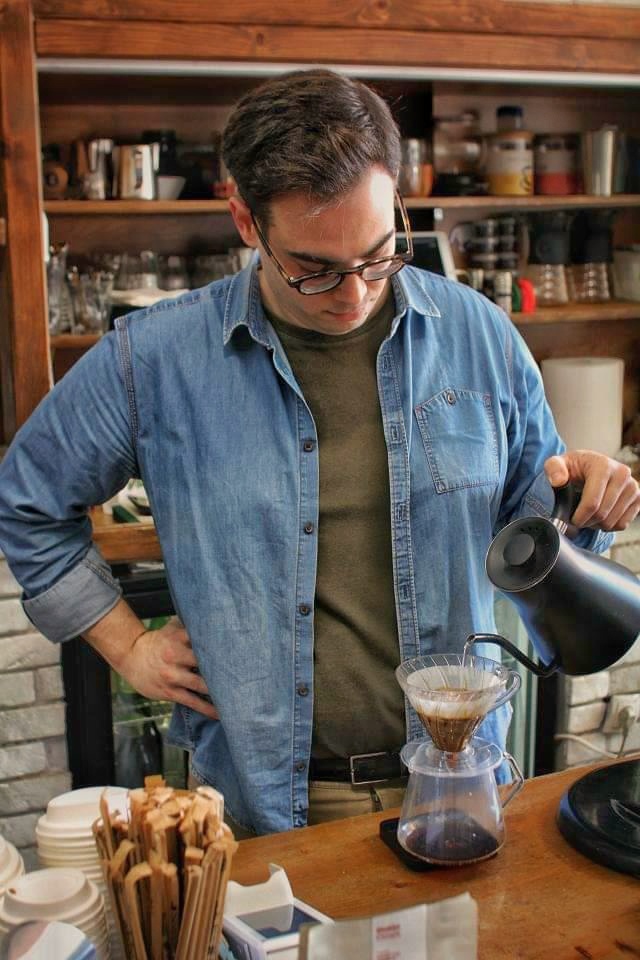
What kind of experience do you want your customers to have when they visit you at the cafe?
For me, it’s all about making people feel comfortable and genuinely welcomed, not through big, cosy armchairs, but through real, approachable communication with the baristas. That personal interaction helps us tailor each experience to the individual. Over the years, specialty coffee has sometimes come off as intimidating or even snobbish, and I think that misses the whole point. At the end of the day, who are we doing all this for, if not the people we serve?
What is your favourite part of the day in your cafe, and why?
Honestly, I enjoy every moment. I love the calm of the early morning—sipping my coffee slowly, easing into the day. But I also thrive on the energy of the rush, when there are 15 orders lined up and everything is moving fast. I’m truly grateful for what I do and the way I get to do it every day.
How do you stay motivated and inspired to keep improving your coffee-making skills?
Honestly, I’m not sure how to explain it – I might just be a bit obsessive. I think many people in the industry will know exactly what I mean. What started as a drive to stay ahead and grow professionally has turned into something deeper. These days, I often go to bed thinking about things like how a low-temperature pre-infusion might enhance flavour clarity in a coffee. It’s just a constant curiosity that never really turns off.
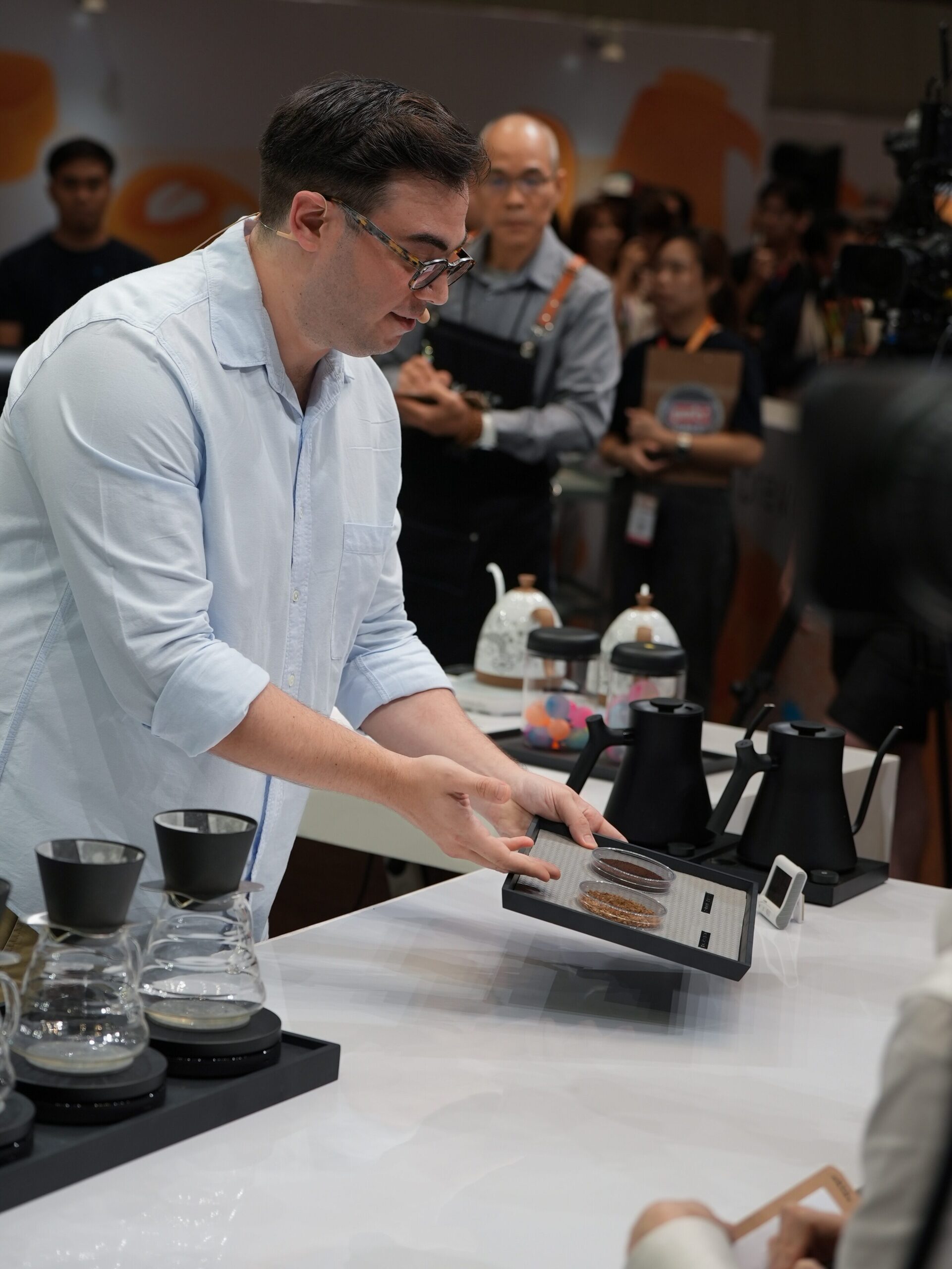
What are some common misconceptions about our industry that you’ve encountered, and how do you address them?
There’s a lot of confusion and polarised opinions around coffee processing and flavour. After more than two decades in the specialty coffee scene, I truly believe it’s time to let the producers take centre stage. We should create space for their stories and efforts, and approach these topics with more openness and less judgment, especially since many of us don’t fully understand the complexities of coffee farming.
What are the current trends in cafes in your region? Are there any trends you promote yourself and would like to see more often in other places?
One of the trends I really appreciate is the push to bring better coffee to the consumer. I’m all for anything that supports that goal – frozen coffee menus, single-dose grinders, smaller, data-driven roasting machines, and offering hand-brewed options. When I started out, the average quality of both green and roasted coffee was much lower than it is today. But we’ve come a long way, and I believe we can go even further.
Today, we have a much deeper understanding of brewing, roasting, and farming practices. I’ve seen it firsthand—10 years ago, we started with basic espresso blends, then moved to high-quality, vacuum-packed Brazilian beans, and today, we’re proudly serving single-origin African coffees as our house option. That kind of progress is exciting, and it’s exactly the kind of trend I want to see continue and grow.
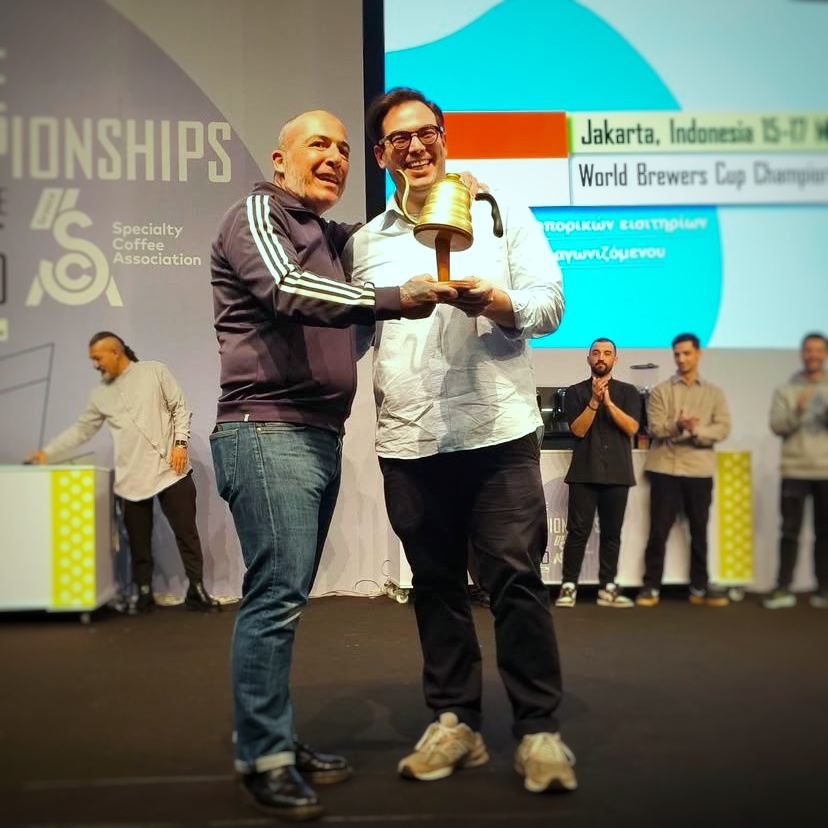
You have some amazing achievements in championships. Can you tell us more about them?
I’ve competed twice in the Brewers Cup, earning a 2nd place and then a 1st place in the Greek Nationals, which allowed me to represent Greece at the World Brewers Cup, where I placed 19th out of 50 competitors. Beyond competing myself, I’ve also been involved as a team member and coach, supporting other competitors in Greece and Italy. We’ve had some great results across various competitions – Brewers Cup, AeroPress, Ibrik, and more. It’s always rewarding to be part of that journey, whether on stage or behind the scenes.
How did it feel to compete on the World Stage? What message and impact did you want to have with your Open Service?
Competing on the world stage was one of the most meaningful experiences of my career. I truly loved and appreciated every moment of it. In my Open Service, I focused on my personal approach to perfecting a coffee experience—asking questions like: What does it take? Where do you begin? What are the small, crucial steps that elevate the cup? Along the way, I made it a point to highlight the work of Diego Bermudez, a producer I deeply admire. He’s often misunderstood in the coffee world, but in my eyes, he’s a true pioneer. I wanted to share not just a coffee, but a story—about intention, innovation, and the people behind the product.
What are the next championships you’d like to compete in?
I’ll most likely compete in the upcoming Brewers Cup again. It’s the competition that feels the most pure when it comes to focusing on coffee and its characteristics. It’s also the most detail-oriented, which is exactly what draws me to it. That level of precision and intention really resonates with how I approach coffee.
What is in your opinion the most important thing to have in mind when you start to compete in coffee championships?
You need to be ready to commit a lot of unpaid hours, usually on top of your regular job. If you’re not truly passionate about it, it’s going to be really hard to push through. That kind of dedication can’t be faked. And honestly, what’s both surprising and inspiring is how many people are out there doing exactly that – putting in the time, the energy, and the heart just for the love of coffee.
If there were one piece of knowledge about coffee you’d like everyone to know, what would that be?
The coffee beans and the brewing water make up about 90% of the cup’s flavour. So instead of chasing the perfect equipment, focus your investment on sourcing great-quality coffee. It’s honestly disappointing to see home baristas using a La Marzocco or cafés with a three-group Slayer, only to serve poorly roasted or old beans. Great coffee starts with great raw materials – everything else comes second.
What are your passions and hobbies apart from coffee?
I do like all things related to flavour and gastronomy. Wine, food, baking, etc. I really like movies, and I am a sports fan too.
What coffee challenges are you looking forward to? Any new projects or collaborations?
Sorry, nothing finalised just yet. I have a couple of projects in the works, but nothing solid to share at the moment. Stay tuned!

Quick Fire Questions for Giorgos Papantoniou:
Filter coffee or espresso-based?
Filter coffee.
Milk coffee or black coffee?
Black.
The most underrated coffee drink?
Ibrik.
The most underrated coffee brewer?
Ibrik.
Favourite piece of barista equipment?
Next Level Pulsar.
The number one place in Europe that every coffee geek should visit?
Too many right now!
